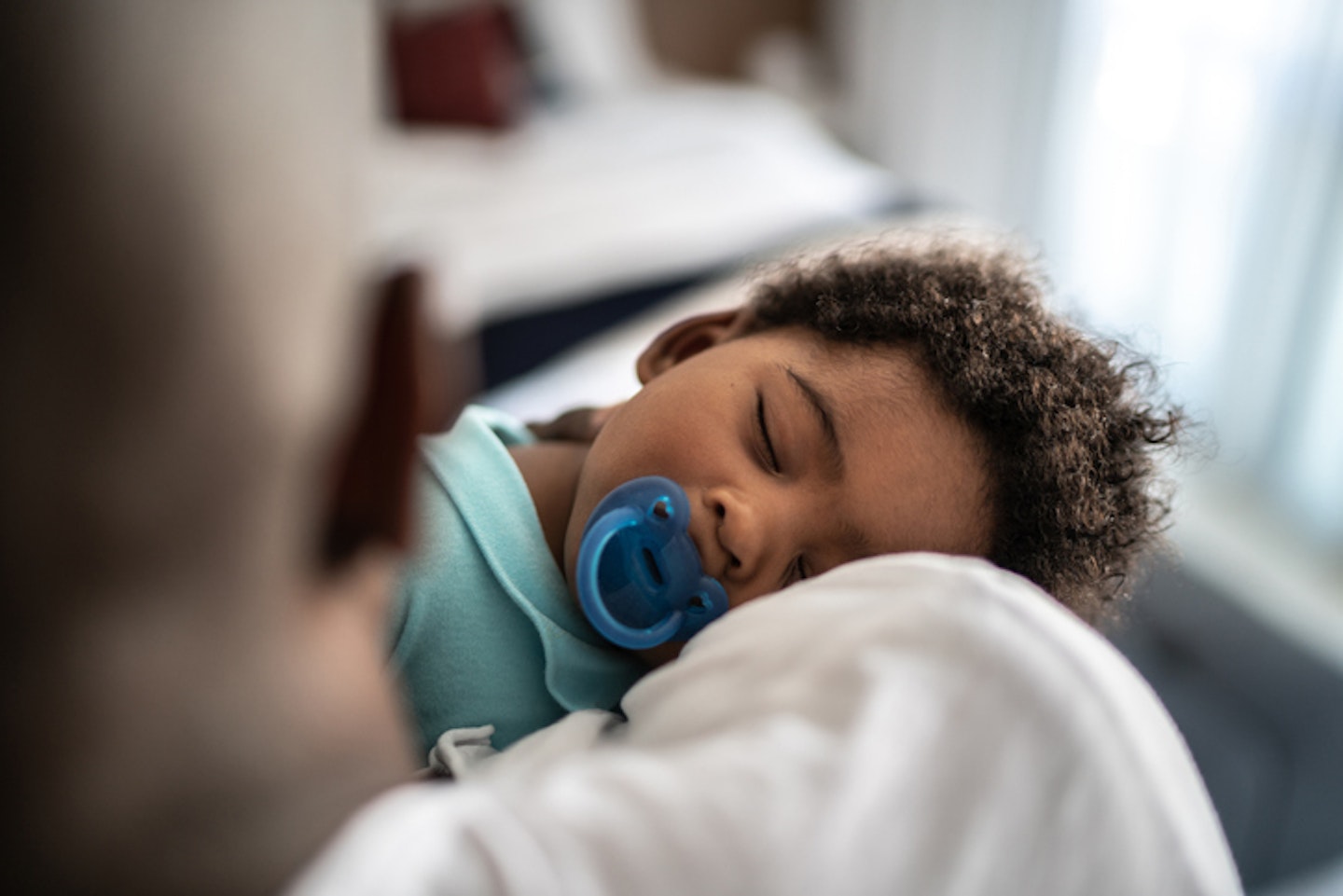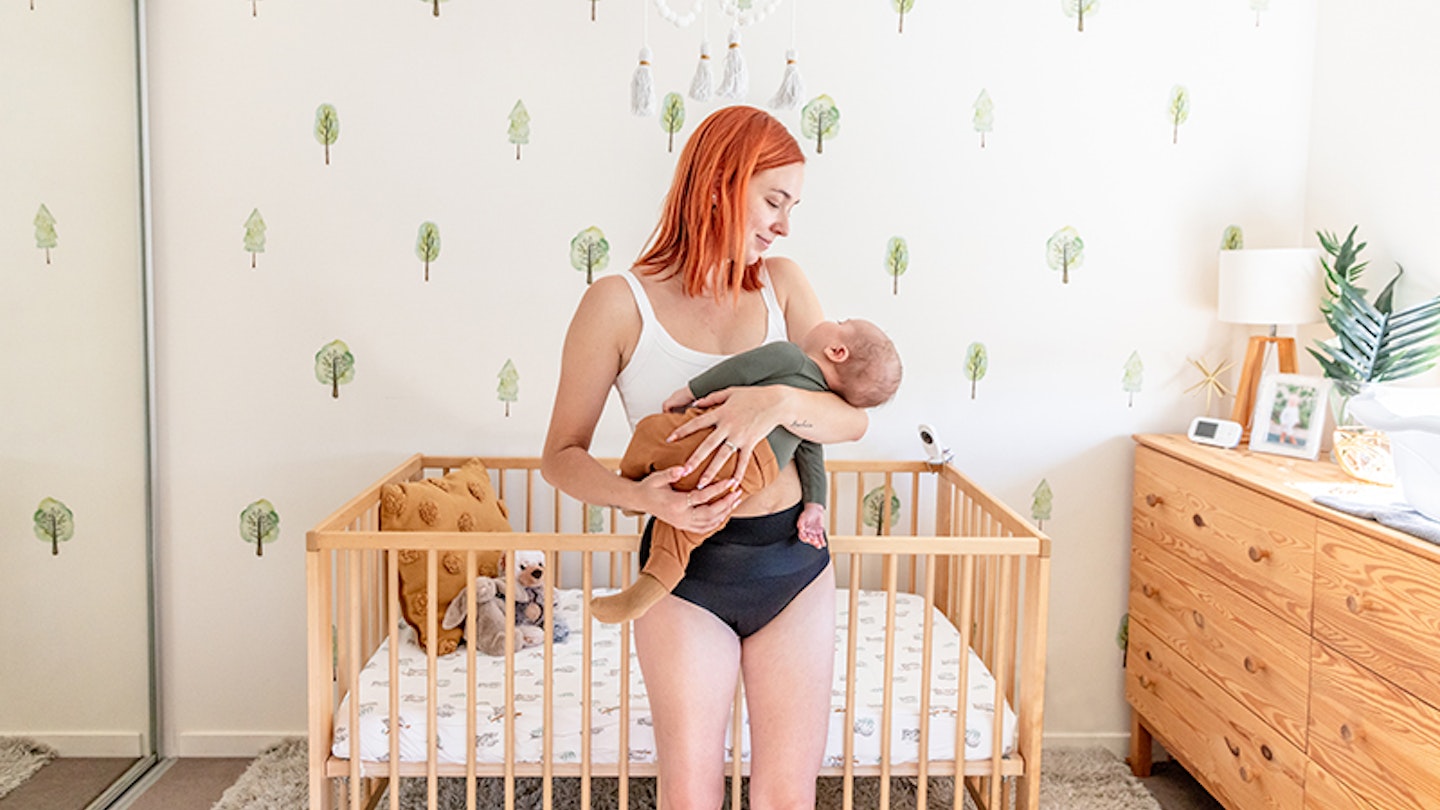Before you even give birth or bring your baby home from the hospital, you've probably already decided that your little one will be sleeping in your room for the foreseeable future, but if you've started asking yourself, "When can I move my baby into their own room?", it may be time to rethink the sleeping arrangements.
We have spoken to several experts who have spent many years helping parents to sleep train babies. With a bit of sleep training and some persistence, you will be able to get your bundle of joy transitioned into their own bedroom.
When should I move my baby into their own room?
For safety reasons, it's generally recommended that your baby sleeps in the same room as you until they reach at least six months old; that way, you're more likely to notice if they're having any problems as you'll be close to them. The chances of SIDS are drastically lowered when babies share a room with their parents, which is likely down to the fact that they can hear and see when they're not breathing sooner than if they were in another location.
Early years parent coach and founder of Positively Parenthood Heidi Skudder says, "It also means that by tossing and turning in the night time, you keep your baby in a lighter sleep which is part of the reasoning for reduced SIDS rates too. Since the back to back campaign in the 1990s, SIDS rates have significantly reduced and therefore it is important to continue to follow these guidelines, even when you feel your baby is sleeping rather noisily!"
How long does it take to transition a baby into their own room?
Once you decide to make the move, it's time for the transition period. Each baby is different, so don't worry if it's taking longer than expected - some are clingier than others, and some babies may have ongoing medical issues, which may make it harder to leave them alone in their room for long periods.
Once they reach the seven to eight-month mark, it could take longer to get them used to being alone in their cot or crib, as they are more aware of their surroundings at this age and are likely to notice when you aren't around at night time, which is why ideally you should start this process before this milestone.
Depending on your situation, it could take anywhere between a few days to a week or even longer. However, it's important to set a routine a stick to it so your baby knows that you mean business.
"Spend some time getting your baby used to their new surroundings," Heidi advises, "you can do this even when they are still sleeping in your room over night. Perhaps practice some naps in their bedroom, or just simple tasks such as changing nappies and doing your bedtime routine in there to start with. The more time baby spends in their bedroom, the more likely they are to get used to it."

Why won't my baby sleep in their cot?
If you're having trouble getting your baby to sleep in their cot, it could be because they're used to falling asleep in other places such as your arms or the sofa, pushchair, car seat or your bed, for example. Teething, illness or a big life change can also cause disruption to their sleep schedule.
Heidi adds, "There is also a chance that your baby is struggling to be put down on their back due to other factors that influence sleep but that are less obvious, such as silent reflux or body tension. An osteopath can be a great first step to ensure that baby is fully comfortable, as well as ensuring that there are no possible symptoms of reflux that your baby is otherwise showing signs of."
How do I get my baby to sleep in their own room?
Before you can all sleep peacefully in your own beds, you need to know how to get baby to sleep. Here are our top tips:
•Get them used to their room: Randomly placing them in the room alone one night could frighten them if they've spent the whole of their little life with you, so you may want to start with small steps. Begin by taking them into their bedroom regularly in the day time to change their nappy, get them dressed and for play sessions before they go for over-night stints.
•Set a routine: This is essential, not just for your baby but for you too. Health visitor Phillipa Forsyth says ‘'Having a different bedtime every day is not conducive to a healthy sleeping pattern. Babies thrive on knowing what to expect and when, which is why routines are ideal.’
•Teach them the difference between day and night: Author of 'The Baby Sleep Guide', Stephanie Modell says that knowing when it's bedtime is important. 'During the day, give more verbal and physical interaction, go out for walks to provide light and fresh air and don't minimise normal daytime sounds when baby is napping. At night, keep the lights low or off, keep night feeds quiet and minimise interaction, keep their room warm and cosy but not too hot.'
•Let them self-settle: Your baby may be showing cues that their tired (turning their head, yawning or crying), so try and put them down into their cot or crib at this point. Sleep expert Wendy Dean recommends using the gradual retreat method. ‘Make sure your baby is awake when you put them in his cot, but maintain contact, such as a hand on baby's chest, until they falls asleep. Over time, you gradually distance yourself, sitting further away until your baby is able to nod off when you’re outside the room.’
Heidi says, "Some babies are able to learn to settle themselves to sleep within a number of days, and other babies take more time. This also depends on the approach the parent has decided to take as some sleep coaching methods take longer than others. For sleep coaching to be successful, the baby needs to be both comfortable, the right level of tired and parents need to be consistent for the period of time it takes to make change."
Heidi Skudder is the founder of Positively Parenthood. She launched a sleep coaching business in 2011, helping new parents create positive sleep habits for their babies. This quickly grew into a successful early years consulting service, with parents worldwide turning to Heidi for support with their babies and toddlers. To date, Heidi has helped thousands of parents with their babies and toddlers, as well as juggling three children of her own.
